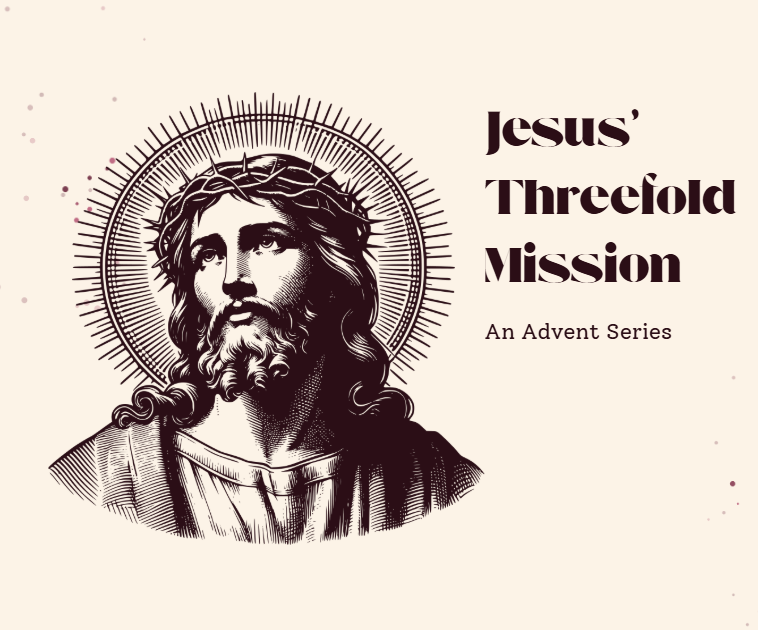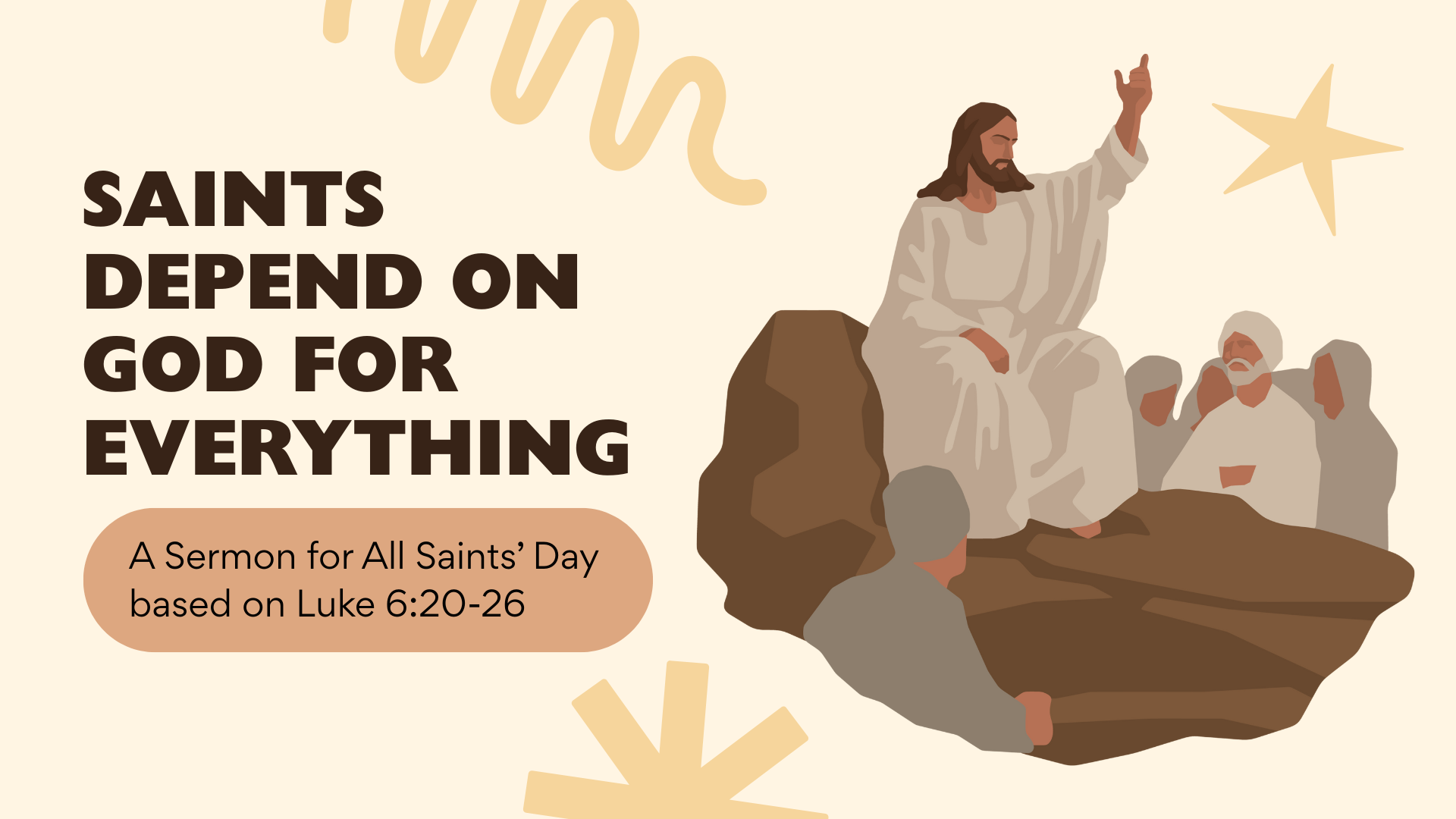Good Friday – Psalm 22

My God. Two words. Five letters. So many possibilities. Is it what you utter when you look in horror at what the wildfire did to your property? Is it what you say when you’re on your feet in your living room, with barbecue sauce on your cheek and beer on your breath, when the last play of the game was full of so many silly mistakes that your team gives up an easy win and therefore a shot at the playoffs? “My God.” Is it what comes out of your mouth, muffled by your fingers and tears, because you just did it again?
“My God” seems too meaningful a statement to use only when we’re shocked. Even the deepest horrors evoke a “My God,” and yet if we’re going to invoke God’s name without any intention of actually talking to him, that is a serious sin, as God will not hold us guiltless for using his name in empty and meaningless ways (Exodus 20:7).
We will hear this cry twice this evening. You heard the first from David. “My God, my God, why have you forsaken me?” You can’t ignore the anguish behind these words. These are the words of one who feels betrayed, set up for failure, left in the lurch – by none other than God! How is this not worse than saying “Oh my God” when taken aback by a jump scare at the movies?
David accuses God of forsaking him… as if he shouldn’t; as if God wouldn’t be in his rights to abandon him. How can David take this attitude with God? What can David grab hold of to urge God to be there for him? What can any of us use as leverage to get God to be good to us? Certainly not our past! We cannot say to God, “Don’t forsake me! I don’t deserve it! I’ve been too good to you for you to abandon me!” There is not a single one of us that can say that with a straight face. Yet David leans upon God as if his absence isn’t right, isn’t exactly what David deserves, isn’t exactly what every sinful human being deserves for breaking God’s law over and over again every day for our entire lives. “Why did you abandon me?”
You want to be careful what you say around some people, because they have a finely-tuned sense for inconsistency. David comes dangerously close to accusing God of being inconsistent. He says, “Our ancestors, Abraham, Isaac, and Jacob all put their trust in you, and you saved them.” He means to say, “So what about me? You have this history of helping people when they cry out to you, but as for me – I’m shouting out day after day, night after night, and am getting nothing!”
Here’s the thing: to insult God for not answering prayer is disrespect to him and blasphemy. But to expect God to answer prayer, to implore him to help, to beg him for rescue – that is not dishonor, that’s exactly what God’s name is for. The emptiest way we can use God’s name is to not use it at all. The most shameful disrespect of God’s character is to forget his character entirely and carry on as if our pain, our problems, our suffering, are none of God’s business. David refuses. David bursts into God’s throne room and demands that he hears him and helps him. How opposite of me that is. I retreat into my little turtle shell when pain, temptation, my own guilt get the better of me. Sometimes we think that God is forsaking us, when what’s actually happening is that as soon as the going got tough, as soon as we started facing fire for our faith, as soon as we got hurt, we forsook God.
David doesn’t rely on his goodness to get God to rescue him, but God’s goodness. He says, “God, you’re the one that made me. You’re the one that made me trust in you. I didn’t ask to be born. I didn’t ask to be yours. You made this happen. You caused me to trust in you even in my most vulnerable years. Well guess what? Here I am vulnerable again. Under attack by dangerous threats. I am worn out. I am weak. I am miserable. I am guilty. I am hard pressed on every side. You got me into this mess called life on planet earth. You get me out of it.”
David is a man whose options have run out. He has learned that even as king of Israel, his riches, his army, his family, his renown, even his own piety cannot save him. Trouble still comes. Danger is still real. You have realized the same thing. You can earn all the money you want, buy all the guns you want, practice all the right habits you want, have all the best stuff and even really good friends – and trouble is still there. You still get depressed. You still get so anxious you can hardly stand it. You still do things that make no sense, do not fit your goals, and leave you feeling disgusting, worthless, and shameful. You and I and David have this in common: our only hope is to turn to the God that made us. To bring him our rawest of emotions, our deepest of struggles, our greatest despair, and to dump it on him as viscerally as David does here.
There is a sweetness to the words, “My God,” a certain kind of love. Crying out God’s name is one thing, but crying out that this God is “My God,” “your God” is another. We hear the true irony of this cry when it comes from Jesus on the cross, who cried “Eli Eli, lema sebachthani!” which means, “My God, My God, why have you forsaken me!” in Aramaic. The language Jesus grew up speaking, because this cry to God the Father grows up out of a very dark place, a place of the deepest kind of pain. The wounds were one thing, but the feeling of being truly abandoned by God the Father – that is a pain that is unimaginable. Yet it was the reality for Jesus on the cross. David placed his suffering into the context of God’s history with mankind. What about Christ’s suffering? After God had rescued Noah, Abraham, Isaac, Jacob, and countless others from their own sin, why does he seem to break the pattern when it comes to his own Son, who had no sin to be rescued from? Why does Jesus prevail upon God his Father with those words of relationship, “My God!” and hear no answer?
Because the entirety of human history hinged on this event. All of God’s promises hinge on this cry of Jesus from the cross. The Father abandons his Son on the cross, in the place of all sinners who deserve to be abandoned. The Father punishes the Son for the sins of the entire human race. That is a brutal pain that cannot be depicted on a movie screen or a canvas, but is put on display in the guttural cry of a dying man, “Lema sebachthani” The Father sacrifices the Son. The Son willingly gives his life, and by his cries we see what giving himself up meant: giving himself up to an unbearable separation. To be completely cut off from God’s goodness. He went through it for you. So that God can become your God. So that you will never be cut off from God’s goodness, no matter how much you’ve sinned. No matter how far you’ve fallen, God will never abandon nor forsake you. He is your God, your God. No matter how much you deserve what’s happening to you right now, it is not the sign that God has changed his mind, and now he’s going to treat you according to what you deserve. By the anguished cries and sacrifice of the Son, he has removed your guilt forever. By abandoning Jesus on a cross, you have the promise that you will never be abandoned. No matter where you have been, no matter where you’re going, God will be there too, with all his goodness and his love, with all his forgiveness.
David saw that salvation, that rescue. He switches tone halfway through the Psalm, showing his prayers were answered; showing that even when it seems God abandons his children, he never actually does. David demands that we tell about how God saves people over and over and over again, never abandoning his beloved creation. He shows that his prayer was not a disrespectful shameful one, but shows us how to use the right and privilege we now have as redeemed children to cry out to God our Father, as our Father, and beg him for help. He shows us what it means to live what we confess: that we are lost without God, helpless and weak – but since we have God’s guarantee of love and rescue, we can cry out to him ; we must cry out to him; we must demand his rescue and forgiveness; we must take up his name on our lips; we must entrust our whole selves: body, mind, and soul, into his care – because he alone can be trusted to actually help us. He will never leave a single cry unheard, unanswered. He will never leave his children uncared for.
Nor did he do that to Jesus. He did not leave Jesus on the cross; did not leave him in the grave; did not abandon him to the realm of the dead that he should see decay. But that’s a story for a different day. That’s the next scene in this redemptive drama. For now, we follow Jesus’ body to the grave and marvel at what he was willing to go through for me and you. We take our seats and watch through Jesus’ seven words from the cross what he was willing to go through to put the words “My God, My God” into our mouths whenever we are in pain or suffer. To teach us to use those words not in an empty way but in their fullness: that we can lean into God as our God and expect nothing but rescue and love from him. We pause here, but we do not stop. Our journey tonight ends on Sunday. So, come with us now.







